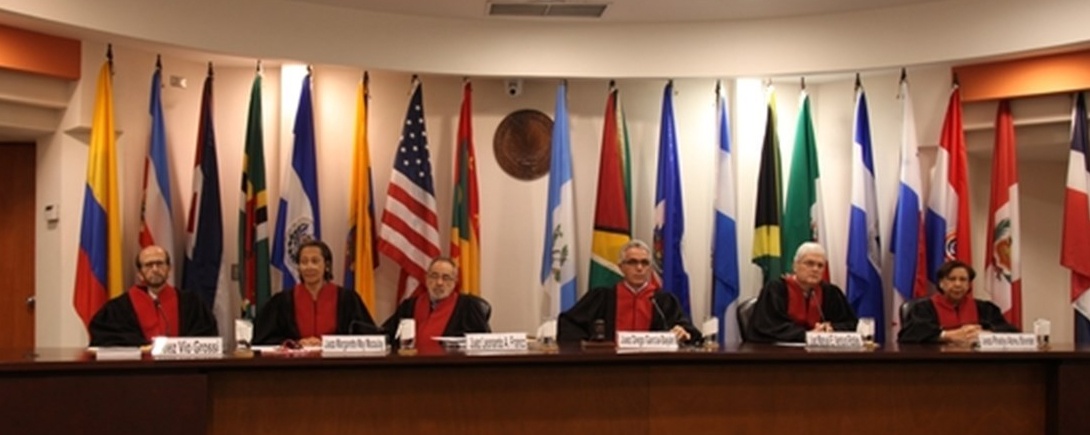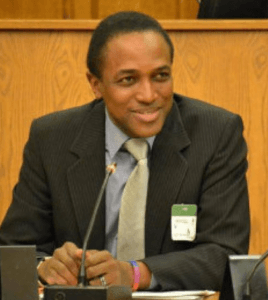Activist petitions for right to same-sex marriage in Jamaica
Colin Stewart is a 45-year journalism veteran living in Southern…
Because it does not allow same-sex marriage, Jamaica’s Constitution is in violation of a human-rights treaty that the country ratified decades ago, according to a petition filed with the Inter-American Commission of Human Rights.

The Jamaica Gleaner reported the news yesterday. (See article below).
After the article appeared, petitioner Maurice Tomlinson received this message:
“Good day Mr. Tomlinson. I saw your article in the Gleaner. You made my day. You make me feel as if there is hope. I was gonna hurt myself and then I saw your article. Thank you Mr. Tomlinson. I love the fact that u r not afraid to talk about issues affecting us in the LGBTQIA+ community.” (Name withheld).”
Tomlinson labeled that message “Why I do this work.”
This is the Jamaica Gleaner’s report on the petition:
Gay marriage fight
Activist mounts challenge to Jamaican Constitution at IACHR
Gay rights activist Maurice Tomlinson has petitioned the Inter-American Commission on Human Rights (IACHR), requesting that it rule that Section 18 (2) of the Jamaican Constitution, which does not recognise a union between persons of the same sex, contravenes various articles of the American Convention of Human Rights ratified by Jamaica 41 years ago.
The American Convention on Human Rights, which came into effect in 1978, is an international human rights instrument aimed at establishing a system of personal liberty and social justice based on respect for the essential rights of man.

In documents obtained by The Gleaner, Tomlinson, who has also mounted a challenge to Jamaica’s anti-sodomy laws in the local Constitutional Court, argued that because the Jamaican Constitution does not recognise same-sex marriage, he and his partner are unable to enjoy the benefits and protections afforded to them.
Section 18 (2) of the Charter states, “No form of marriage or other relationship referred to in subsection (1), other than the voluntary union of one man and one woman, may be contracted or legally recognised in Jamaica.”
Tomlinson, who holds both Jamaican and Canadian citizenship, wants to return to Jamaica, where he was born, with his Canadian husband in order to work and look after his ageing parents, who are in rapidly declining health.
The petition, filed on Tomlinson’s behalf by attorneys-at-law Dr Emir Crowne and Matthew Gayle, also says that by virtue of this constitutional ban against non-heterosexual unions, there is neither an adequate nor effective domestic remedy available to him and/or his same-sex partner under Jamaican law.
It also outlined several instances in which persons believed to be members of the LGBT community had been killed.
Tomlinson is, therefore, asking the IACHR to require Jamaica to fulfil its human-rights obligations under the convention.
The gay-rights activist is also asking the commission to recommend that the Government repeal Section 18 (2) of the Constitution of Jamaica in order to comply with the country’s obligations under the convention.
Further, he wants the IACHR to recommend that the Government allow the naturalisation of same-sex spouses of Jamaican citizens on the same conditions as heterosexual spouses of Jamaican citizens.
As per the obligations under the conventions, Tomlinson wants, among other things, the Jamaican Government to condemn and monitor serious human-rights violations, including discrimination and hate speech, as well as incitement to violence and hatred.
A letter dated July 18, 2019, has subsequently been sent to Ambassador Audrey Marks, permanent representative of Jamaica to the Organisation of American States, requesting a government response to the petition in three months.
Related articles:
- Archive of this blog’s articles by and about Maurice Tomlinson
- Archive of this blog’s articles about the Inter-American Commission on Human Rights and the Inter-American Court of Human Rights




